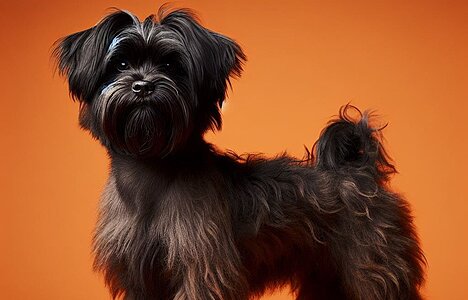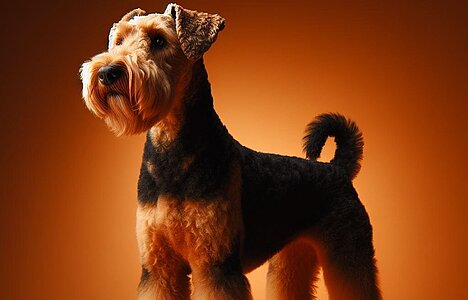Anatomical feature "Compact"

Compact and powerful: What the "compact" characteristic really means in dog breeds
Have you ever wondered what it means when a dog breed is described as "compact"? This trait is a sign of a variety of features that characterize a dog not only in its size, but also in its structure and energy. In this article, you'll learn everything you need to know about compact dog breeds - from their physical characteristics to the specific needs of these charming four-legged friends.
What does "compact" mean?
Size and weight
A compact dog is usually small to medium in size, with a weight and height that exhibit a dense, muscular body structure. This means that these dogs are often heavier than they appear at first glance. Their bone structure is dense and they often have a well-developed musculature, which gives them a solid and powerful appearance.
Build and proportions
Compact dogs have a well-proportioned build. Their limbs are usually shorter and stronger, giving them a stable base. The body is often broad and deep, with a strong chest and a straight back. This gives them a robust and resilient structure that is ideal for various activities and tasks.
Examples of compact dog breeds
French Bulldog
The French Bulldog is a prime example of a compact dog breed. With its muscular body, broad chest and short, strong legs, it is both charming and robust. These little powerhouses are known for their energy and playful character.
Pug
Another compact companion is the pug. Despite its small size, the pug is surprisingly heavy and solidly built. Its round head, short muzzle and deep-set eyes contribute to its distinctive appearance, while its strong body makes it a hardy and durable dog.
Jack Russell Terrier
The Jack Russell Terrier may be small, but he is a real bundle of energy. This breed has a compact, muscular body that allows it to be agile and fast. Jack Russells are known for their tireless energy and their ability to perform just as well in small spaces as they do in wide open fields.
Advantages of a compact dog
Space-saving and transportable
A compact dog fits well in apartments and smaller homes. They are easy to transport and can be easily carried in smaller cars or public transportation. This feature makes them ideal for city dwellers and people who travel a lot.
Robust and resilient
Despite their smaller size, compact dogs are often very robust and hardy. Their dense musculature and solid bone structure make them less prone to injuries and health problems that can be more common in larger or more delicate dogs.
Versatility
Compact dogs are often very versatile and can cope well in different environments and situations. Whether as active companions during sporting activities or as cozy couch potatoes - these dogs adapt well to different lifestyles.
Special care and attention
Exercise and activity
Even though compact dogs often require less space, they still need sufficient exercise and mental stimulation. These breeds are often very energetic and benefit from regular walks, playtime and training sessions.
Nutrition
As compact dogs have dense muscles and a strong build, a balanced diet is particularly important. Make sure to give them high-quality food that contains all the necessary nutrients to support their health and energy.
Health checks
Compact dog breeds can be prone to certain health issues, such as respiratory problems in short-nosed breeds (e.g. Pug and French Bulldog) or joint problems in muscular breeds. Regular visits to the vet and good preventative care are crucial in order to recognize and treat these potential problems at an early stage.
Small powerhouses with great charm
Compact dogs are true powerhouses in a small format. Their sturdy structure, versatility and charming personality make them wonderful companions for many different lifestyles. If you're considering bringing a compact dog into your life, you'll find a loyal, energetic friend who can be happy and healthy both in the city and in the countryside.


